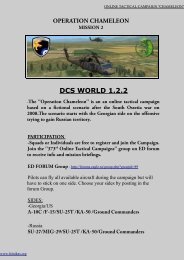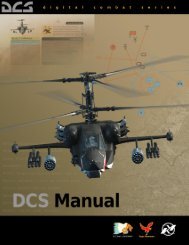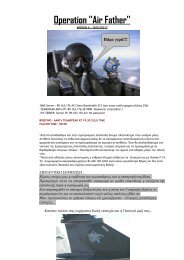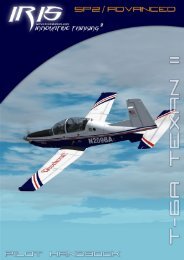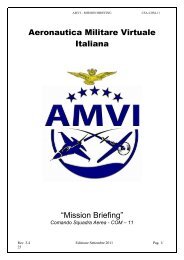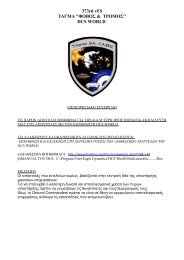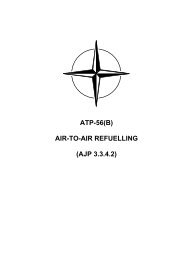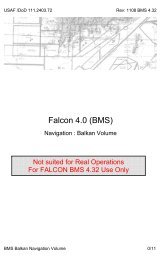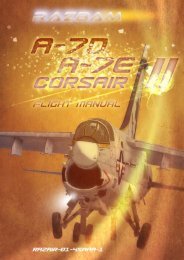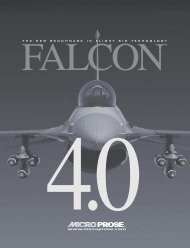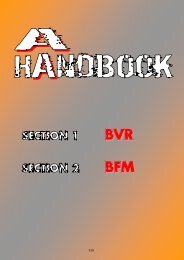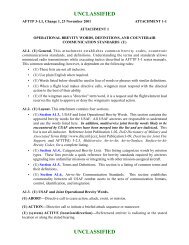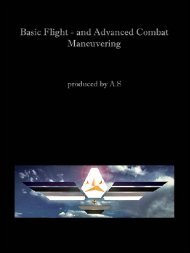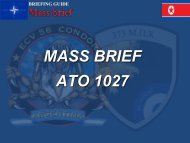You also want an ePaper? Increase the reach of your titles
YUMPU automatically turns print PDFs into web optimized ePapers that Google loves.
attlefield thinking, and they instilled this in their students. So, cutting units off<br />
from their commanders would force independent thought, and this was something<br />
most Iraqis didn’t handle well. Battles are chaotic enough anyway, and without<br />
direction from above many Iraqi units initially did nothing at all.<br />
Then there was saturation. KARI worked okay against the ten or twenty<br />
aircraft-strike packages from the Iran-Iraq War, but we had over three hundred<br />
aircraft hitting them every day and they were overwhelmed. Throw in the<br />
communications disruption and jamming that had them chasing false targets, and<br />
it’s obvious why we gained air supremacy in two days.<br />
When their MiGs and Mirages did take off to gloriously battle the infidel<br />
invaders (that would be us again), none of them ever came back. I helped chase a<br />
flight of Mirage fighters into Iran one day as they bravely ran away. Another<br />
morning, I watched two MiG-23s fly into the ground as they tried to shake off a<br />
horde of U.S. jets swarming in their direction. So, in addition to their technical<br />
shortcomings, the Iraqis had a critical morale problem.<br />
We’d gone into this more or less ad hoc in 1991, but by 2003 we’d figured it<br />
out. Extreme adaptability is one of the most defining characteristics of the<br />
American military, and we adapted. We also function very well as small<br />
independent units that don’t require a lot of supervision. In fact, supervision is<br />
usually highly resented.<br />
Now, with lots of time between the wars, we had the luxury of really picking the<br />
threat apart and studying it. Remember, the goal of Operation Desert Storm had<br />
been to save Kuwaiti and Saudi oil, not to invade Iraq. But we knew the next war<br />
would be different. Next time we’d have to go to Baghdad.<br />
No one liked rotating to Saudi or Kuwait twice per year, but we made the most<br />
of it. It was, in fact, terrific practical experience and afforded us a superb<br />
opportunity to know the terrain, the weather, and build up our knowledge of a<br />
threat we’d face eventually. We still hated it.<br />
The Weasels from the 20th Fighter Wing did this from Dhahran, Saudi Arabia.<br />
This base was left over from Desert Storm and sat south of Iraq on the Persian<br />
Gulf. Dhahran wasn’t too bad for several reasons. First, it was only a hundred miles<br />
from the Iraqi border, and in a region so vast this made response times very quick<br />
and our missions that much shorter. Second, unlike the rest of the Kingdom, the<br />
city of Dhahran actually had a few amenities. The downtown area had been built<br />
with petrodollars and boasted good restaurants and even a shopping mall. Because<br />
of the oil fields, the locals were accustomed to Westerners and were relatively<br />
tolerant.



